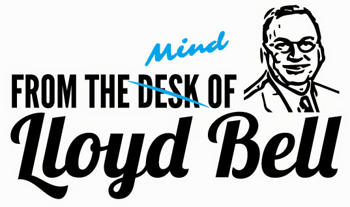Family Business Succession Planning: Handling the Next Generation

When I was fairly young (at which time my kids assume dinosaurs roamed the Earth), I would play chess with my grandfather when I visited his house. To be honest, I really didn't remember these games as he passed away when I was in high school.
Years later, my grandmother gave me a chess set that my grandfather had commissioned from a woodcarver in Italy. She told me that my grandfather wanted me to have it since he fondly remembered our games. My brother, who never played with my grandfather, got squat.
What if, instead of a chess set, we were talking about the family business? One in which one sibling (or grandchild) is gainfully employed while the other is not. Would it be fair to gift the business to one and not to the other? Maybe not, but is it any more fair to give one half of the business to each when only one sibling is involved in the business?
Balancing Family Relations With Family Business
In family business succession planning, determining who will operate the business and guide its success into the future is an important part of the process. Can efficient and effective management of the enterprise be accomplished with talented family members? Should management, instead, be left to key employees? Or, will it be necessary to look beyond family and current employees to find the talent necessary for the business to thrive?
There are emotional issues that are going to be very important to consider as you go through this process. Additionally, it’s important to ensure that, if there is going to be a family transition, the family members who are going to step up are indeed qualified. In some family contexts, ownership and management of a business might be seen as a birthright, but in other contexts, that’s not the case because the interests of the business override.
I have seen instances where the exiting generation tries to achieve parity by having the business valued and giving one child stock in the business and the other an equal dollar amount in marketable securities. Human nature being what it is, the recipient of the closely held stock felt that it was a far riskier investment and had a higher potential for loss. ("I'm getting hosed.") Conversely, the recipient of marketable securities felt that the business value had much higher upside potential and that they would miss out on the appreciation. ("No, I'm getting hosed.")
Unfortunately, there is no best way to achieve the transfer of wealth that will be considered to be fair by all parties unless conversations surrounding that transfer occur well in advance.
What works for one family situation will not work for another, so it’s important that the cast of characters discuss not only the options available but also the expectations of everyone involved. We know from survey after survey that a significant percentage of business owners plan on keeping the business within the family, but a large percentage of those owners haven't figured out to whom, how, or more importantly, if the expected recipient(s) wants it. Better to figure all of that out now.
As for the chess set, I see it not as game pieces but rather as a part of our family history. My brother is welcome to come over and play, but I'd have to frisk him on the way out.
Lloyd W.W. Bell III is Director of the Corporate Finance Group at Meaden & Moore. He has over 30 years of experience in financial management.








